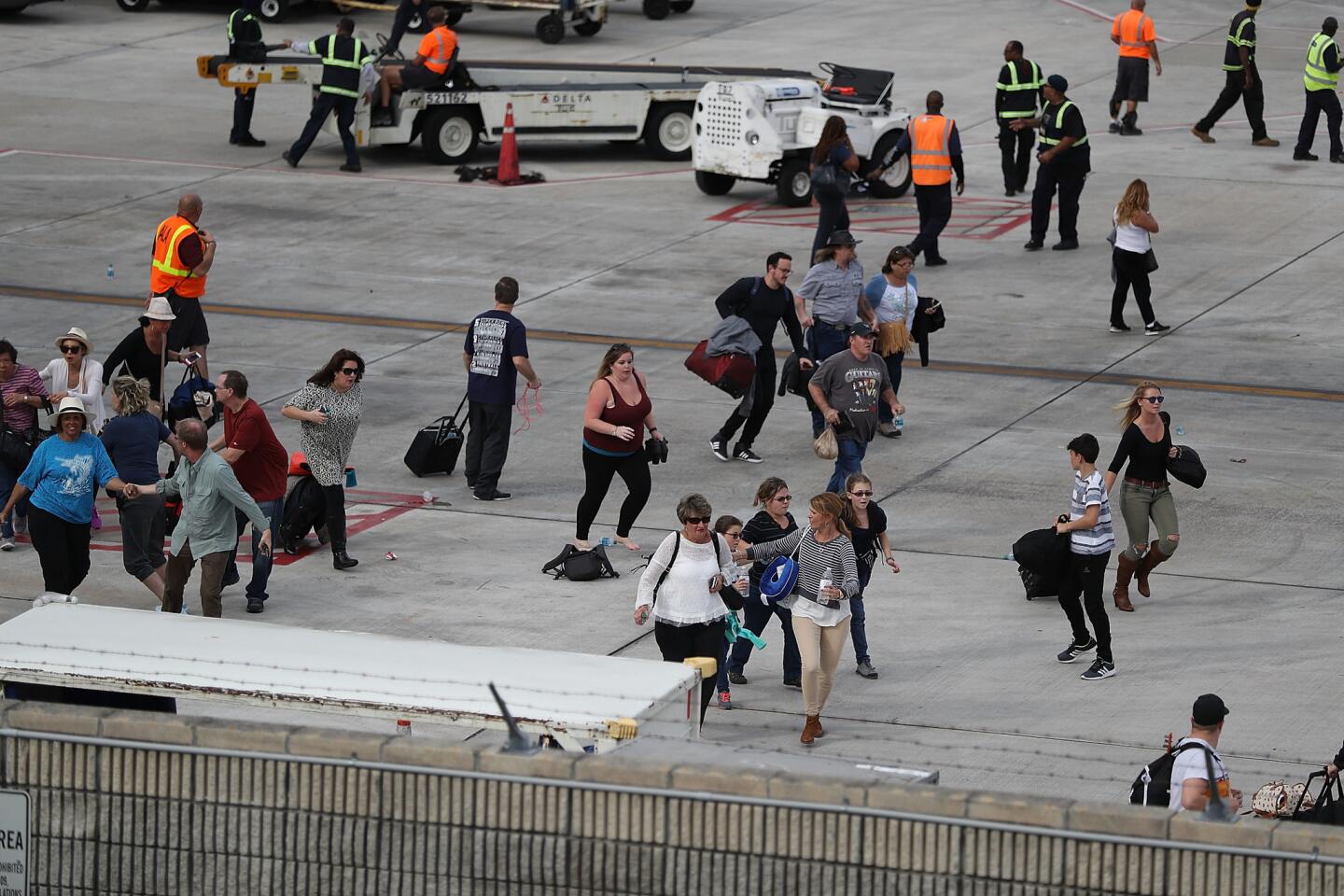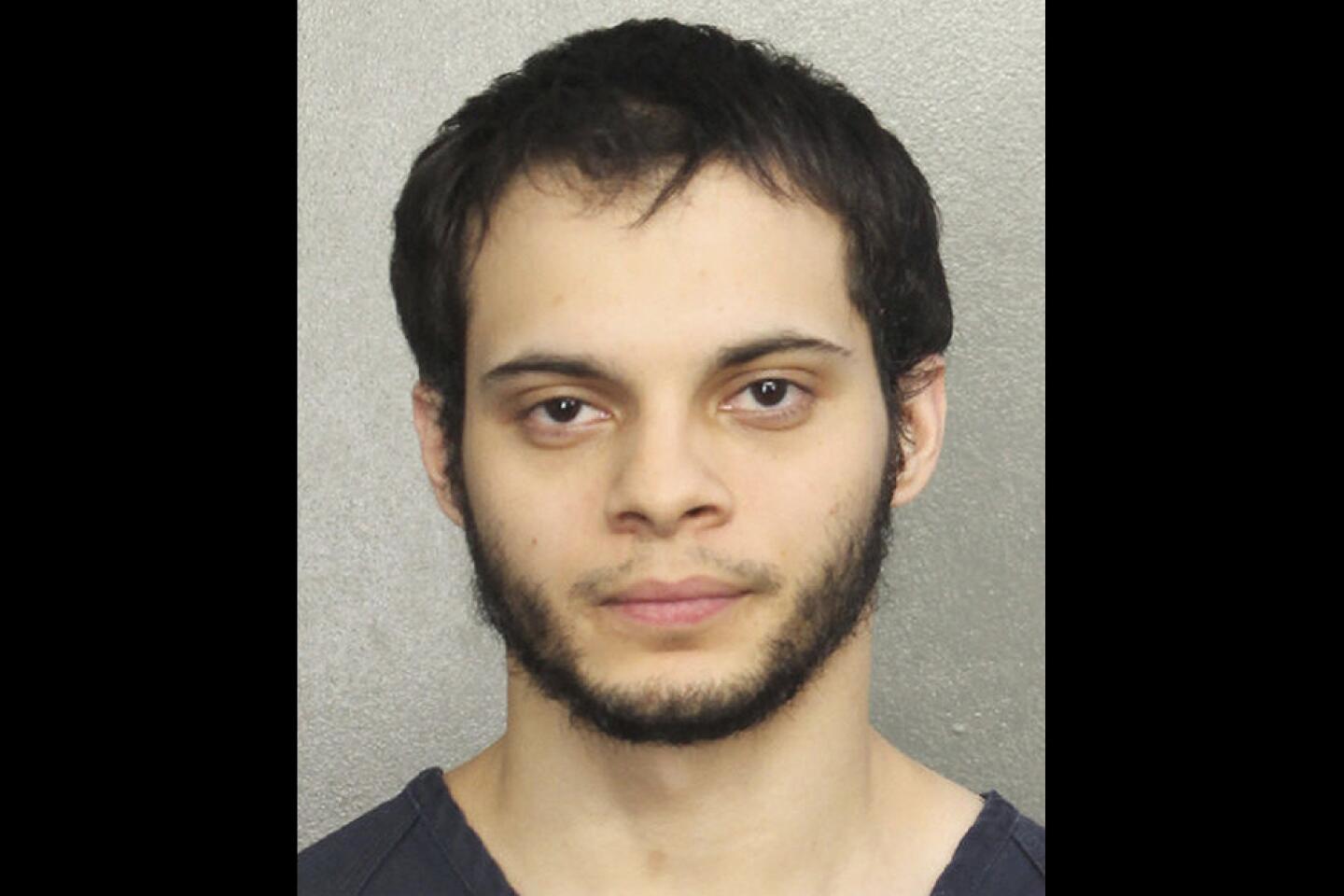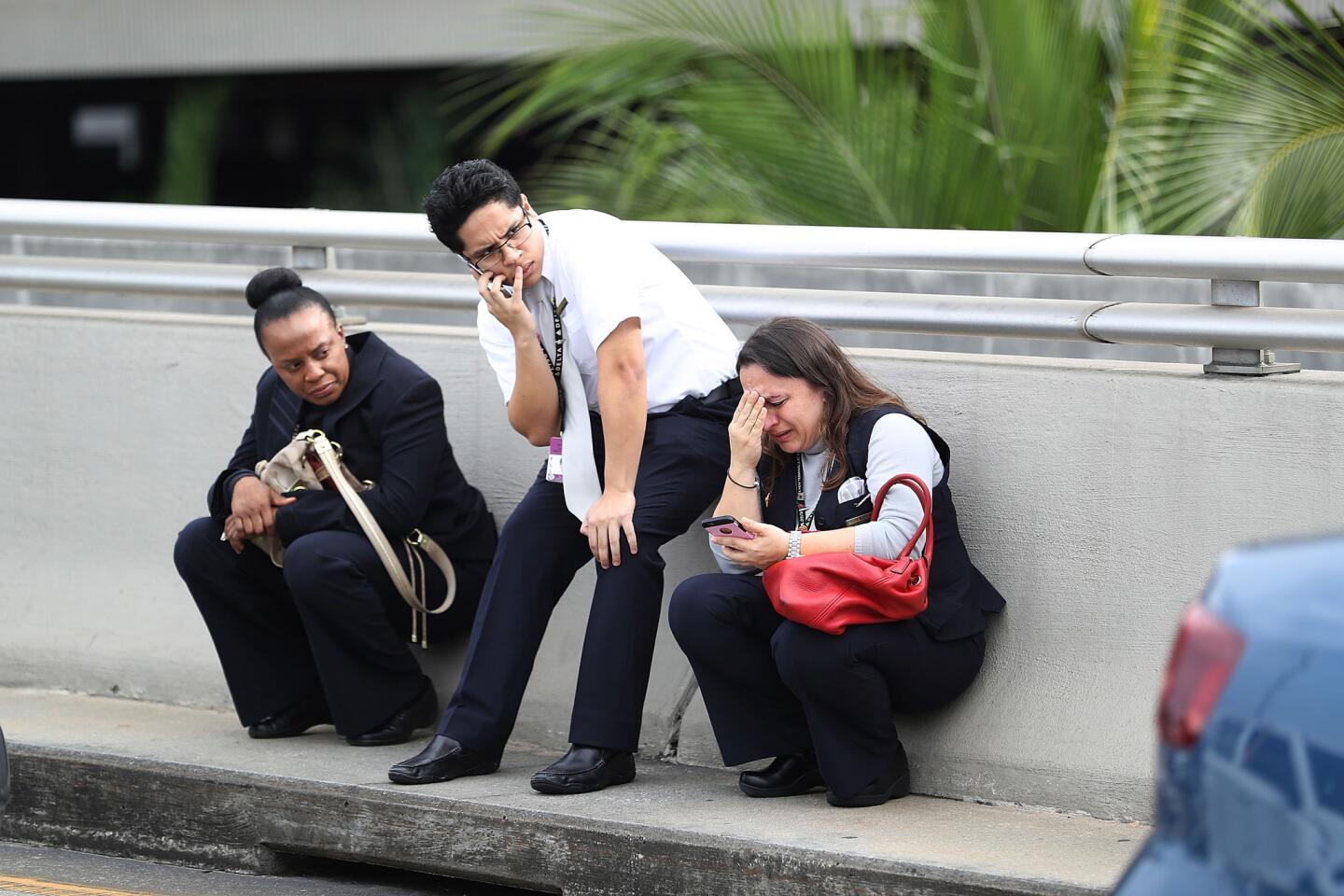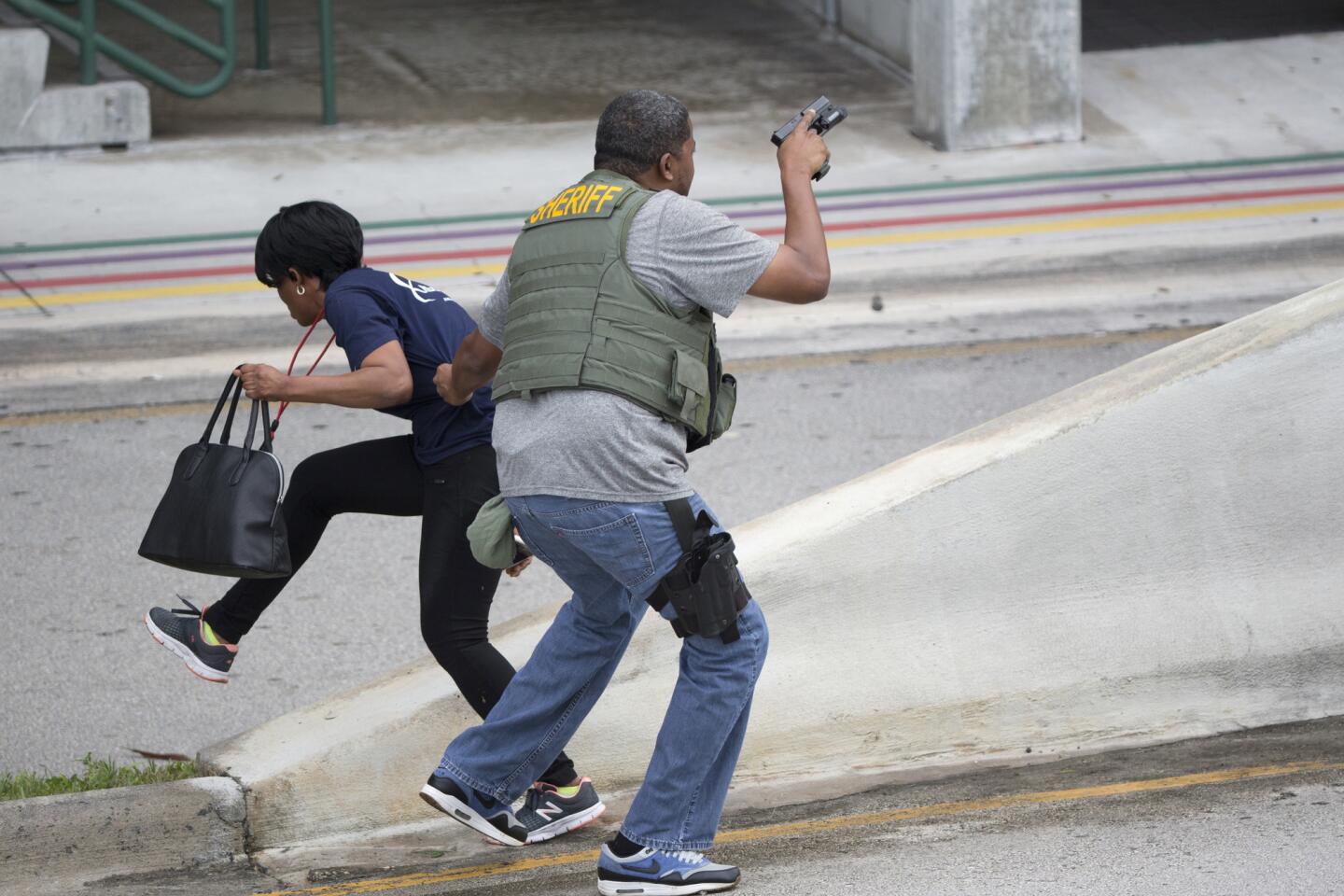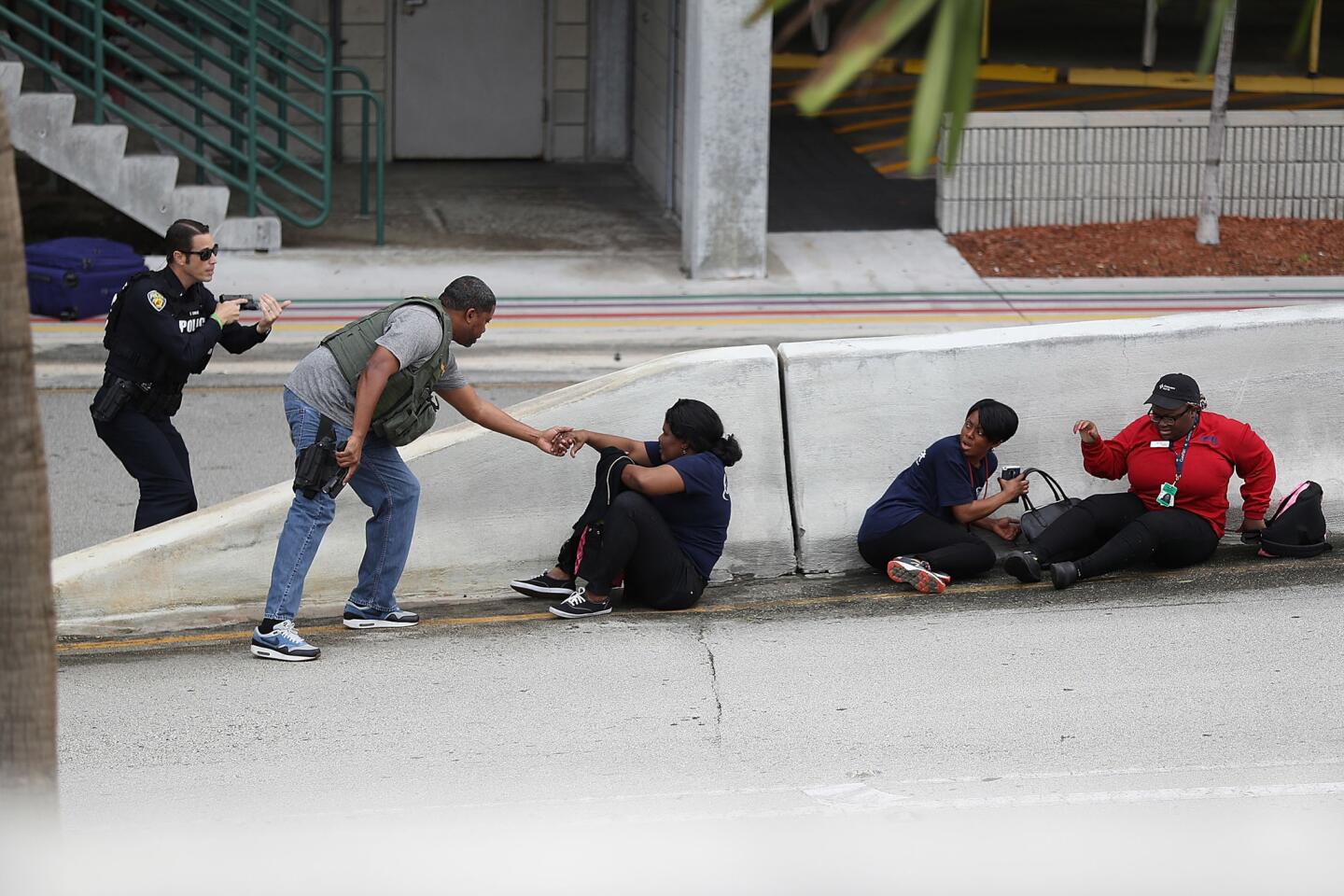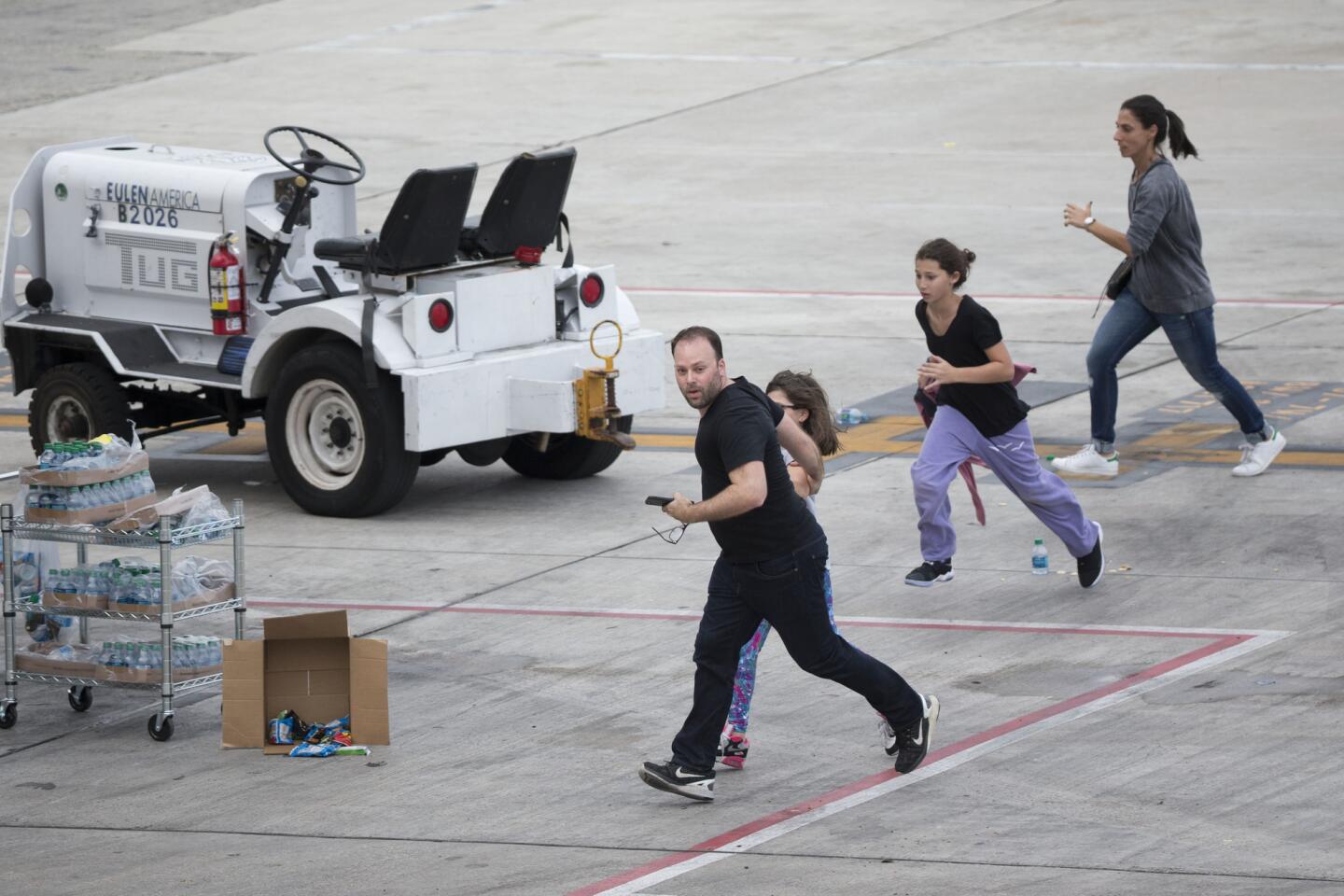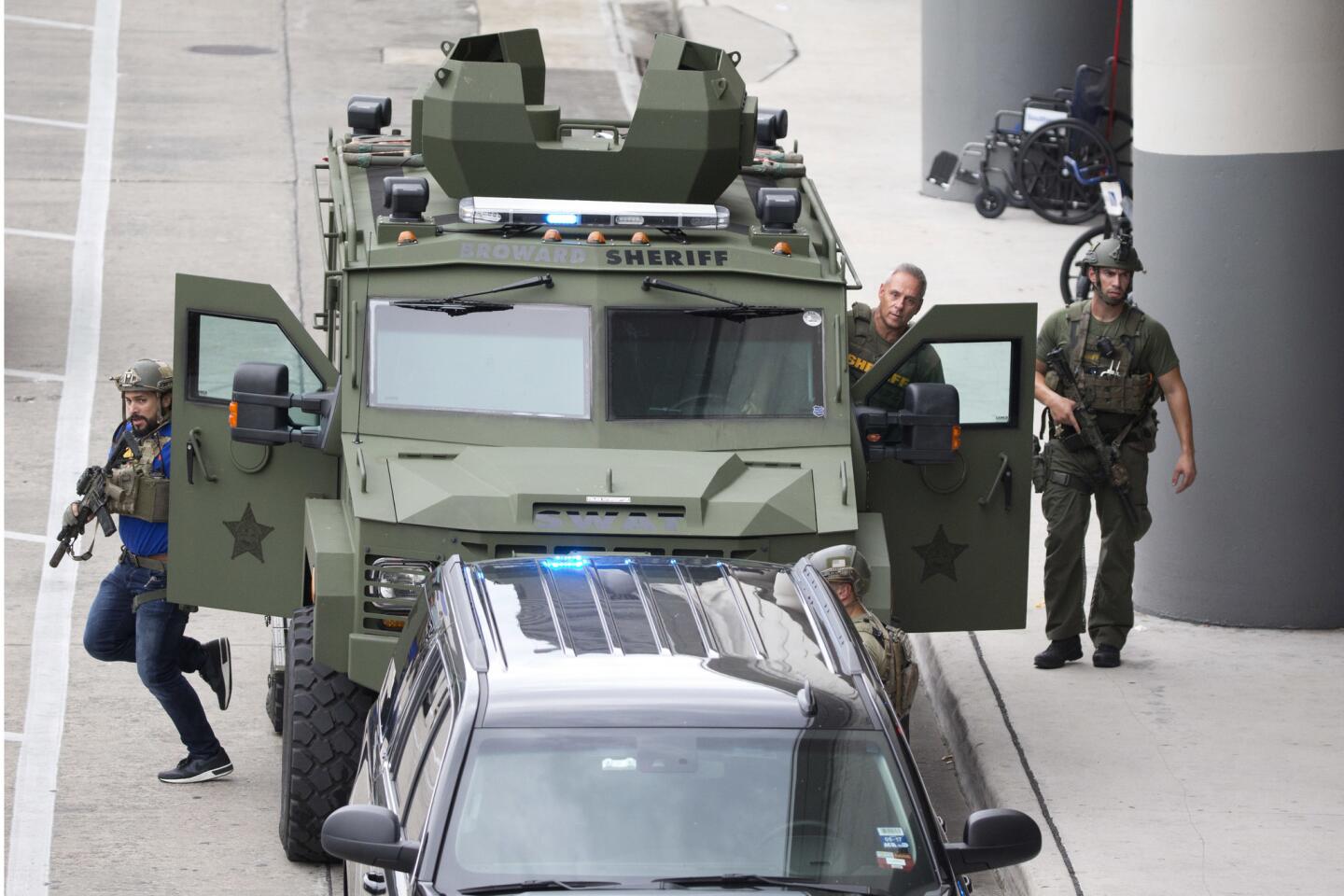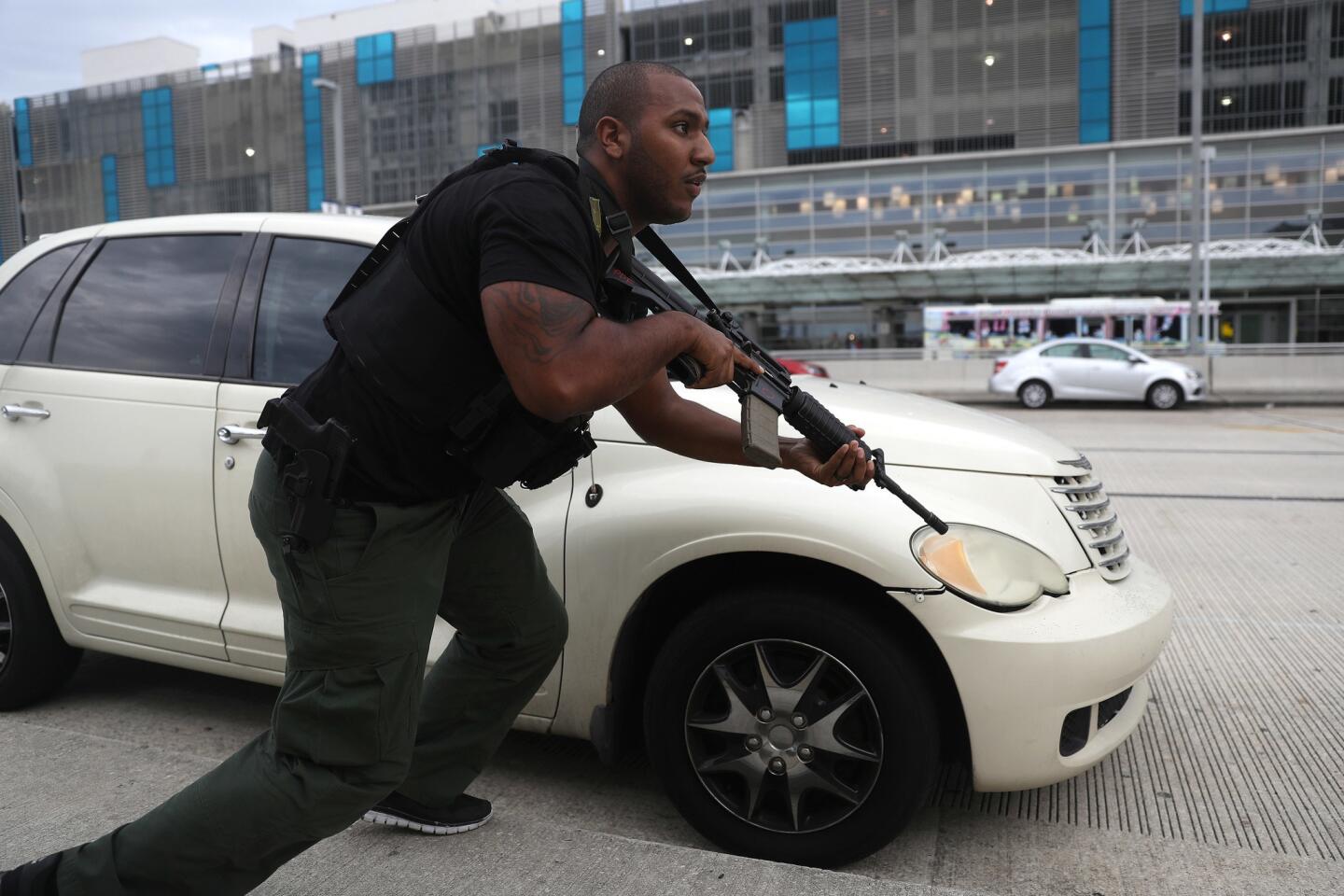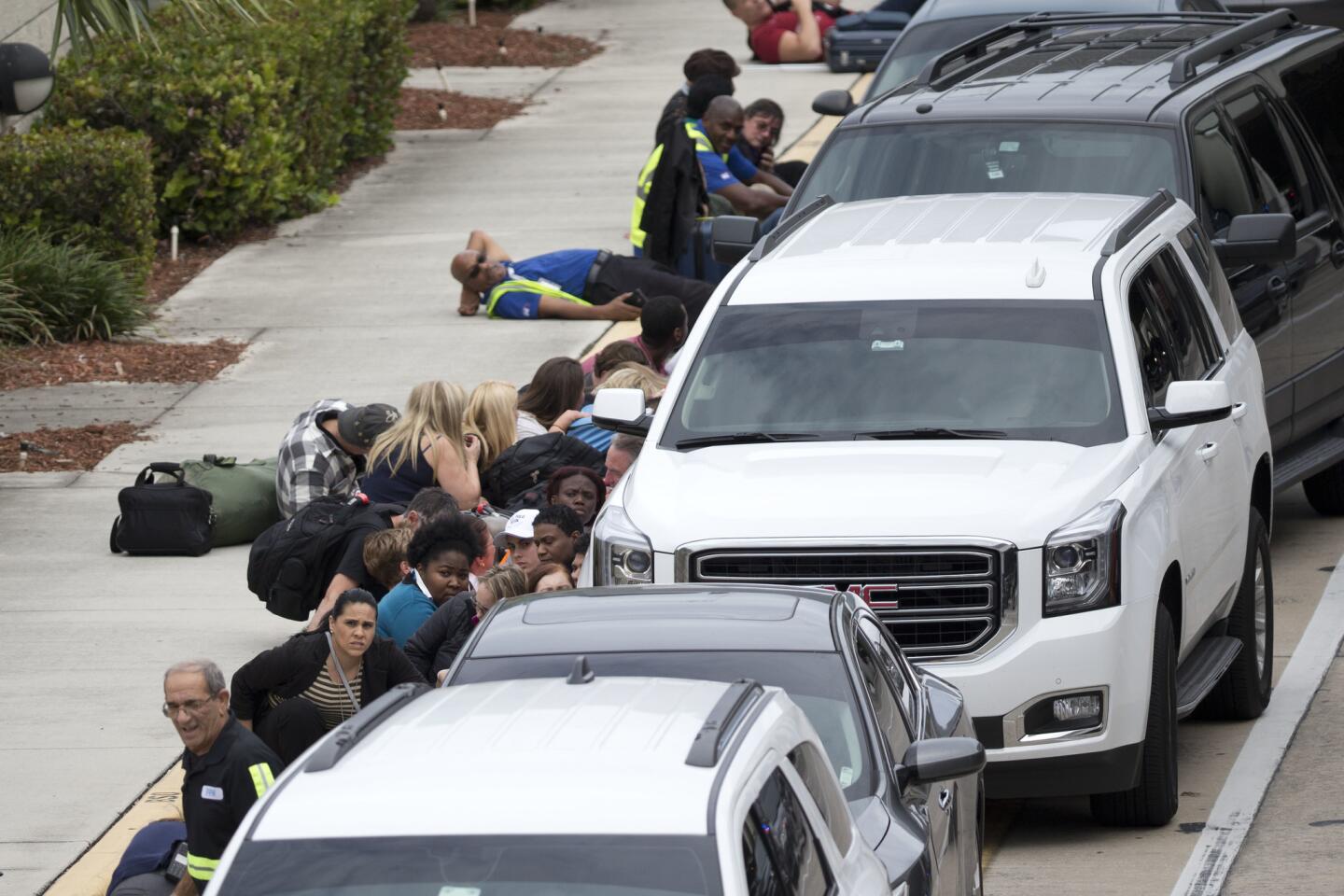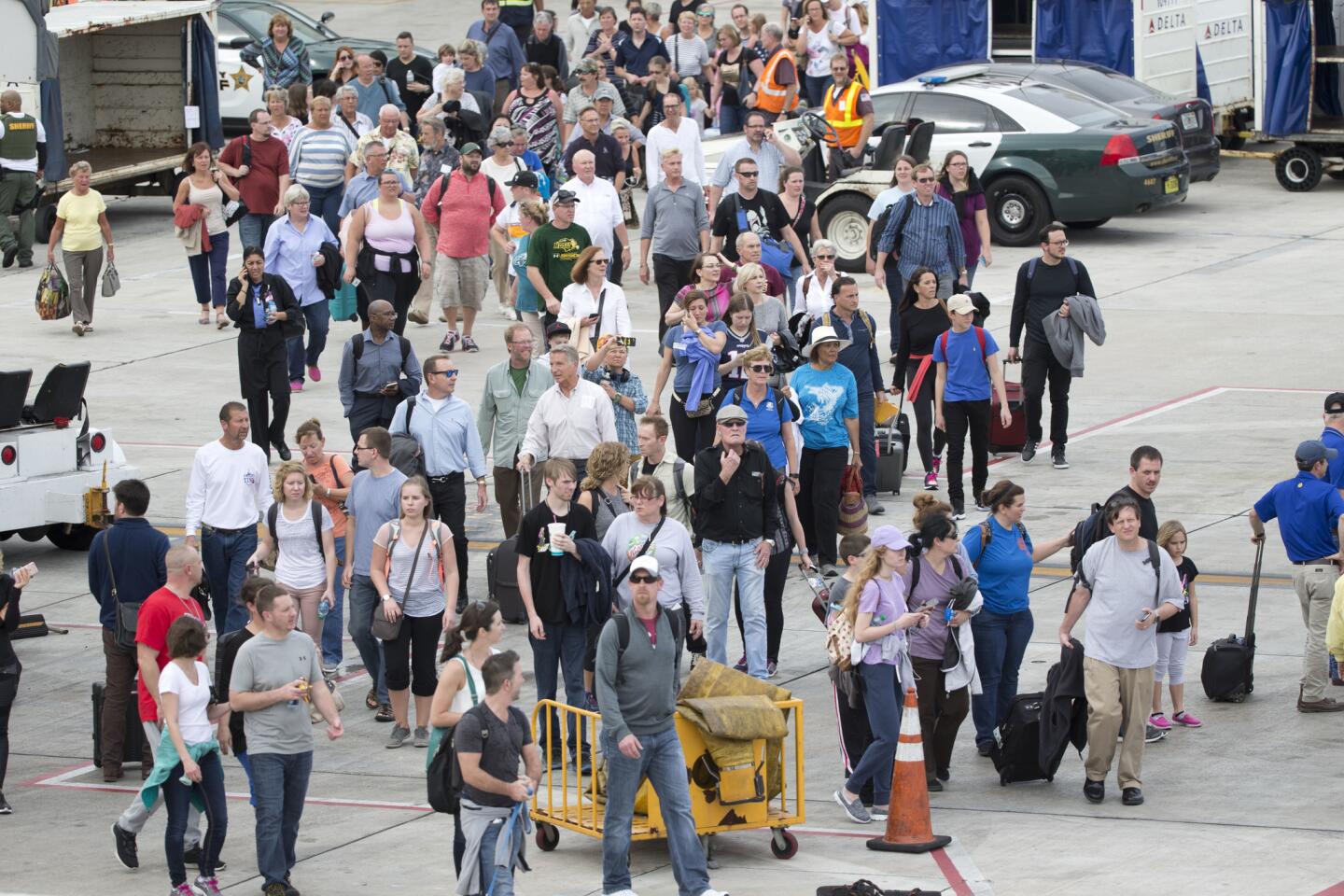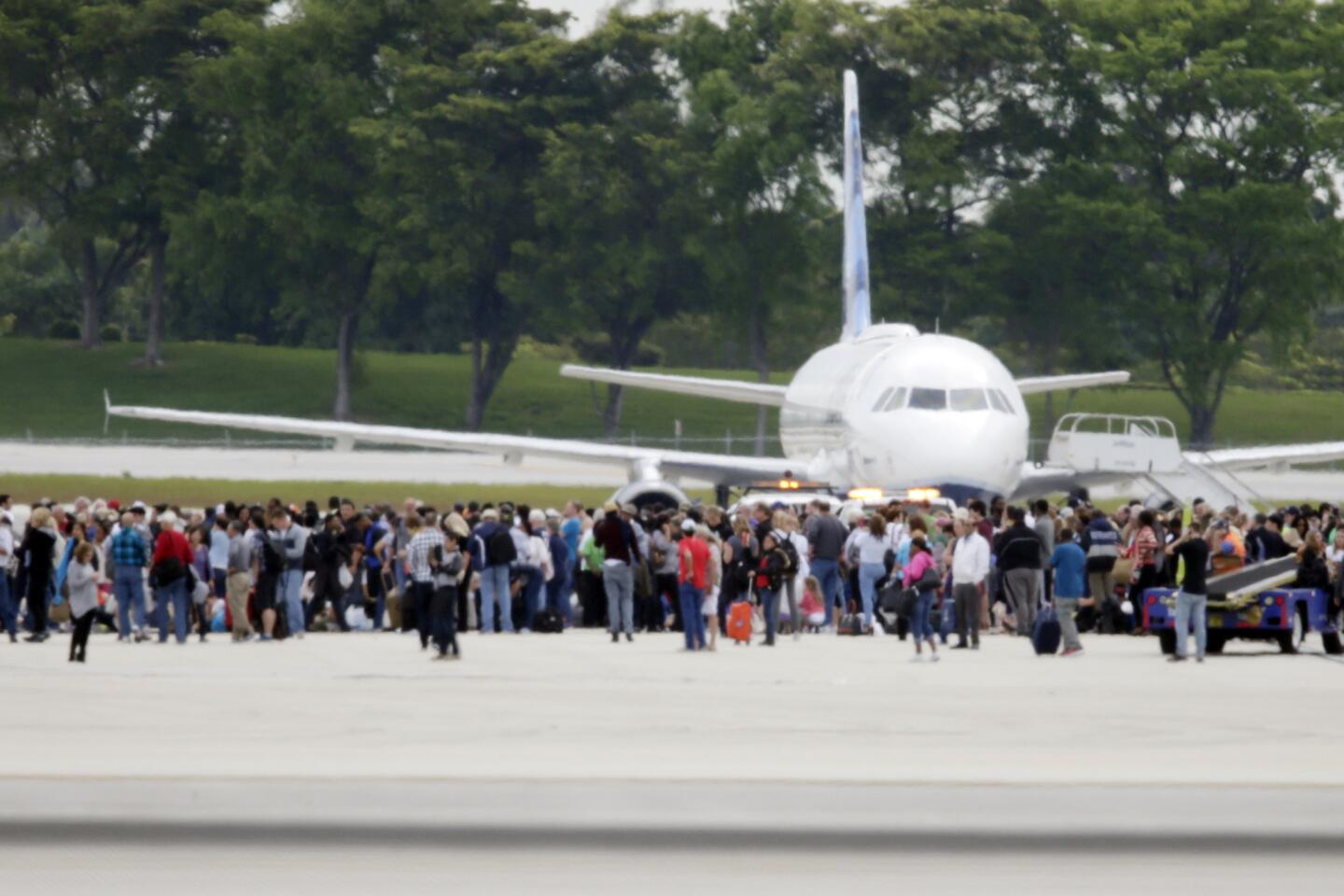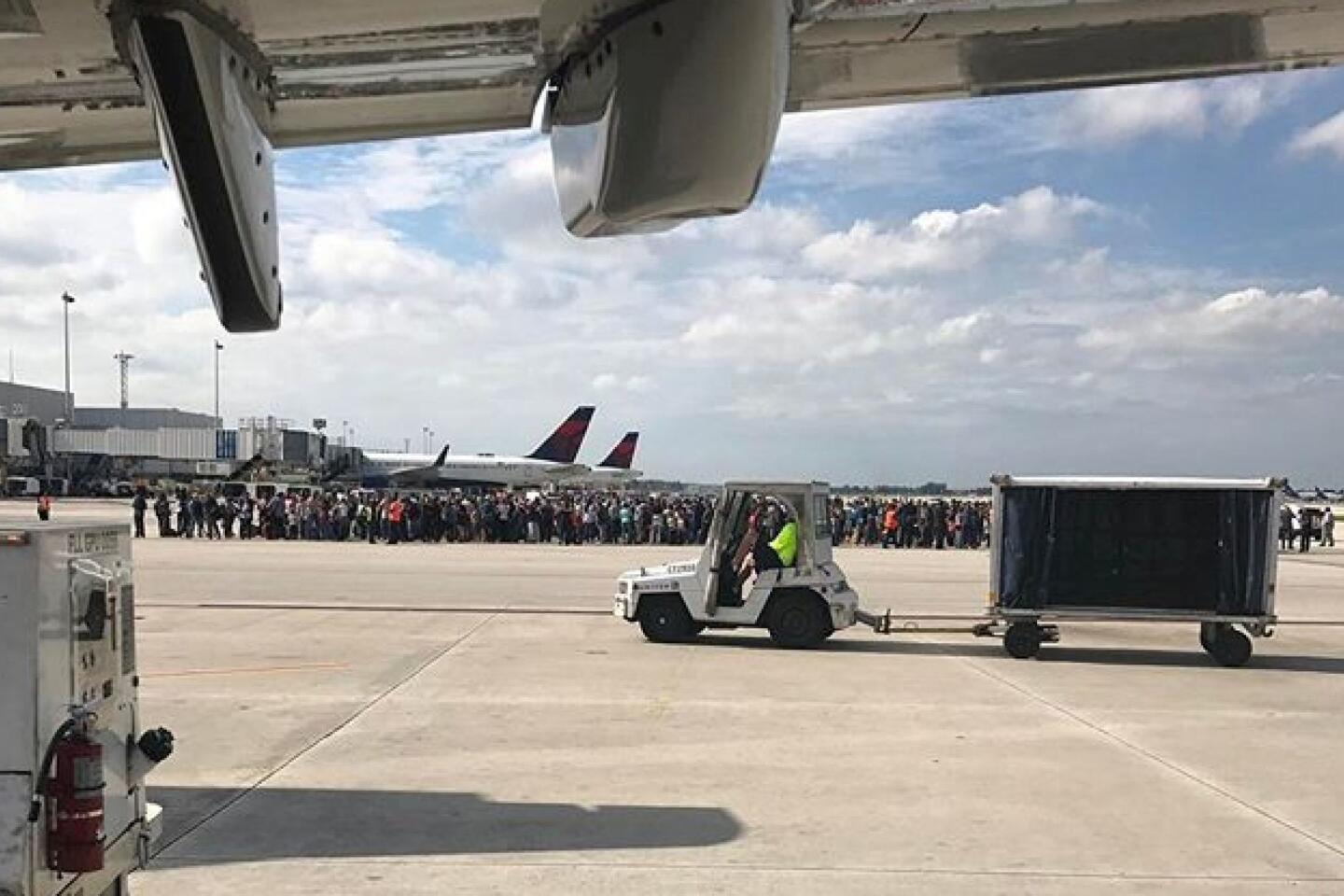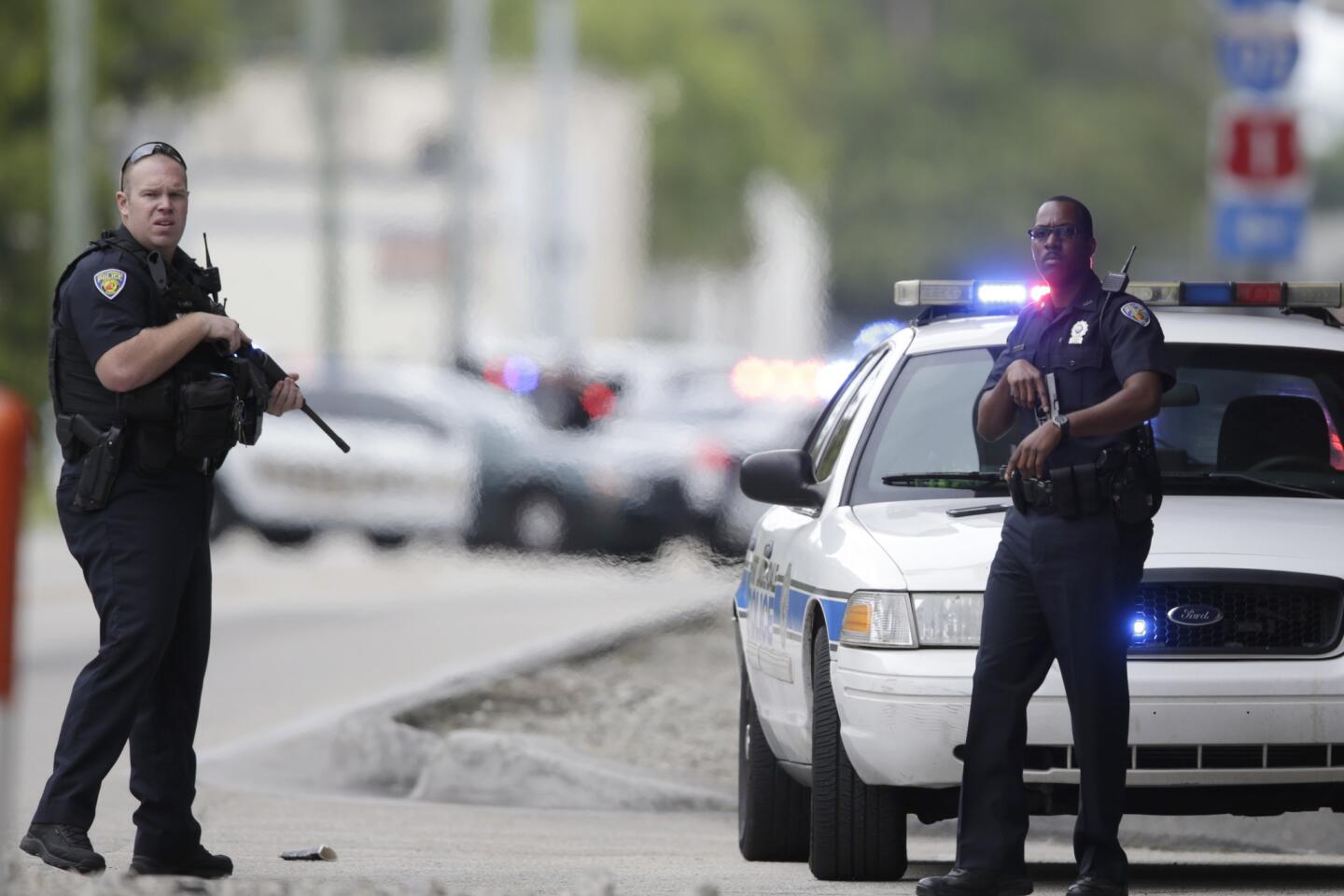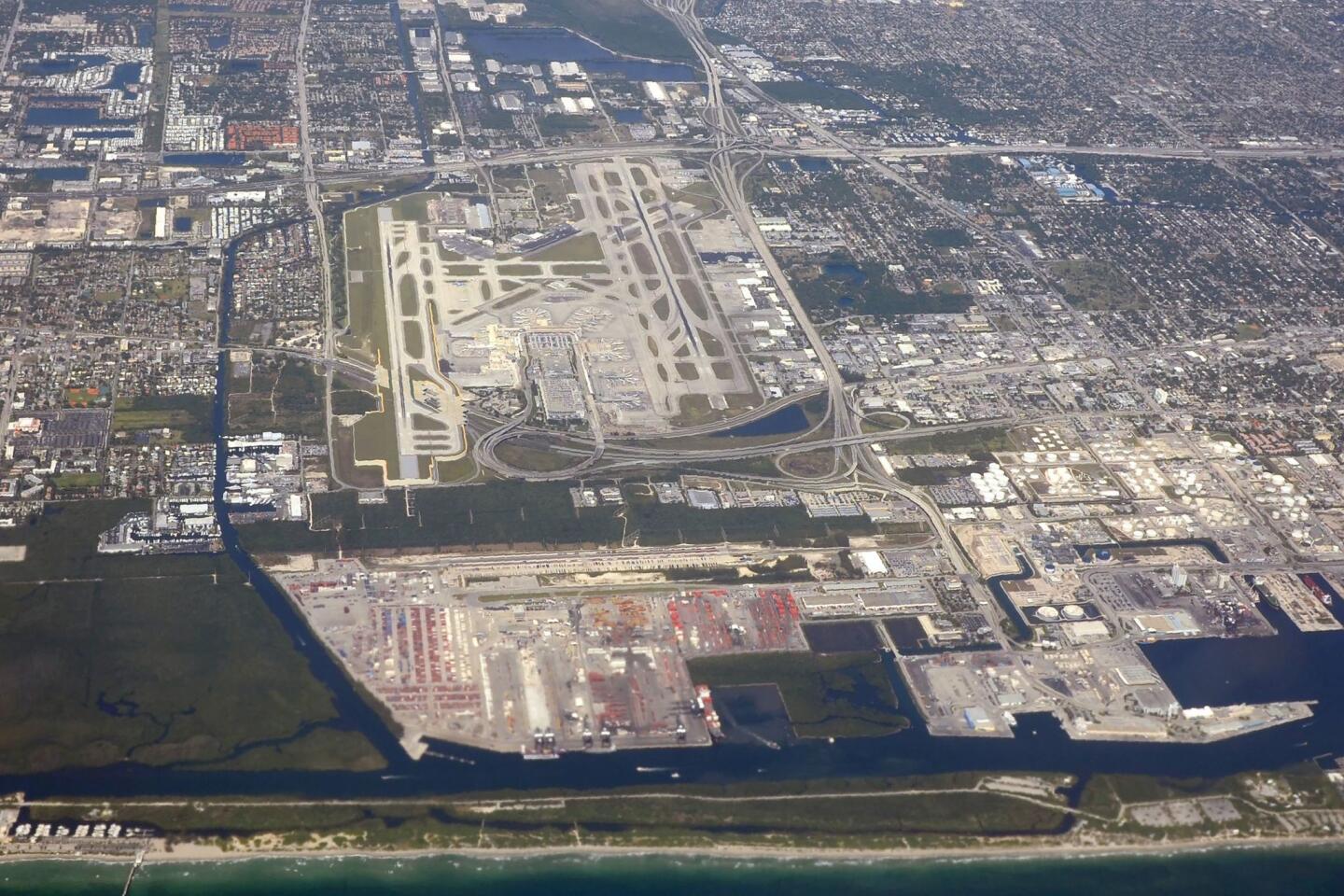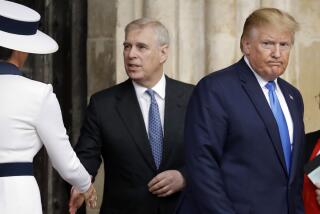Florida airport shooting suspect will face charges that could bring the death penalty
Reporting from Fort Lauderdale, Fla. — Investigators say Florida airport shooting suspect Esteban Santiago told them he planned the carnage and purchased a one-way ticket to Fort Lauderdale to carry it out.
But it is still unclear why South Florida was targeted.
Federal prosecutors filed court documents Saturday detailing airport violence, gun and murder allegations against Santiago. If convicted, he could face the death penalty or life in federal prison, they said.
“Santiago fired approximately 10 to 15 rounds of ammunition from his firearm, aiming at his victims’ heads. He was described as walking while shooting in a methodical manner,” FBI Agent Michael Ferlazzo wrote in court records.
Five people died and six more suffered gunshot injuries.
“At one point, he exited the Terminal 2 baggage area [and went] onto the sidewalk and then re-entered, still carrying the handgun,” agents wrote.
Moments later, a Broward County sheriff’s deputy approached Santiago, who “dropped the handgun on the ground, in lock-back [mode], meaning that all the ammunition had been fired, and [he] dropped to the floor,” investigators wrote.
They say Santiago told them he checked baggage that contained a Walther 9mm semiautomatic handgun and two magazines of ammunition. After claiming his baggage, he said he took it into a stall in the men’s restroom, removed the gun, loaded it and put it in his waistband, authorities said.
“He then left the men’s restroom and shot the first people he encountered,” agents wrote. “Santiago emptied his first magazine, then reloaded and shot until the second magazine, too, was out of bullets. He believes he shot approximately 15 rounds before his arrest.”
The shootings were apparently recorded by security video, which agents said corroborated Santiago’s confession and witnesses’ statements.
Santiago, 26, of Anchorage, is due to make his first appearance at 11 a.m. Monday in federal court in Fort Lauderdale.
He traveled nearly 5,000 miles from Alaska to Fort Lauderdale. But after interviewing Santiago for hours, investigators said they had no clear answer to the question: Why did he come to Fort Lauderdale?
“The early indication is that there was no specific reason why he chose Fort Lauderdale International Airport,” said George L. Piro, the special agent in charge of the FBI in South Florida.
“Indications are he came here to carry out this horrific attack. We have not identified any triggers that would have caused this attack, but again it’s very early in the investigation,” Piro said.
It could be several days, or weeks, before formal charges are filed. Prosecutors will most likely seek an indictment by presenting their evidence to a federal grand jury in Fort Lauderdale.
At the initial hearing Monday in federal court, U.S. Magistrate Judge Alicia Valle will explain the allegations to Santiago. She will probably also appoint the Federal Public Defender’s Office to represent Santiago, if he does not hire a private attorney.
If Santiago says he wants to try to persuade the judge to release him on bond — a request that would certainly be rejected because of his flight risk and the danger he could pose to the public — the prosecution and defense will have several days to prepare for it.
Though state prosecutors in Florida frequently seek the death penalty, it is uncommon for federal prosecutors to pursue it.
Federal judges and jurors in Florida have only sentenced two men to federal death row since Congress reinstated the death penalty in 1988.
State prosecutors in Broward County could seek to file murder charges against Santiago separately because the shooting deaths occurred there.
The Broward State Attorney’s Office is cooperating with federal prosecutors, and no decision on that has yet been made, a spokesman said Saturday.
“We are here to help any way that we can. A decision will be made in the next few days about how we can help,” said Ron Ishoy, a spokesman for Broward State Atty. Mike Satz.
Federal authorities say they are still investigating the motive for the attack and have not yet ruled out terrorism. They say Santiago was acting alone.
Santiago has no obvious connection to southeast Florida but has some relatives who live in the Naples area, on the southwest coast of Florida, nearly a two-hour drive away. He took a Delta flight with a connection in Minneapolis/St. Paul.
Santiago cooperated during an interview, which lasted for several hours on Friday and into early Saturday morning, authorities said. He spoke with FBI agents and Broward sheriff’s detectives.
An Iraqi war veteran, Santiago sought out the FBI in Anchorage in November and was hospitalized for mental health treatment after what agents said was “erratic behavior,” authorities said.
Anchorage police and the FBI confirmed Saturday that Santiago went to the FBI office in Anchorage seeking help Nov. 7. He was hospitalized for a mental health evaluation and a firearm he had left in his vehicle outside the office was temporarily taken from him.
The gun, which investigators said may or may not be the one used in the mass shooting at the airport in Fort Lauderdale, was returned to him by law enforcement on Dec. 8.
Despite reportedly being disturbed and delusional and having had incidents of reported domestic violence, Santiago was not on the government list of people prohibited from flying that was set up after the terrorist attacks of Sept. 11, 2001.
“During our initial investigation we found no ties to terrorism,” said Marlin Ritzman, the agent in charge of the FBI’s office in Anchorage. “He broke no laws when he came into our office making comments about mind control.”
The FBI contacted the Anchorage Police Department, which transported Santiago to a mental health facility. The department took his weapon and “logged it into evidence for safekeeping,” Police Chief Christopher Tolley said.
“Mr. Santiago had arrived at the FBI building asking for help,” Tolley said. “Santiago was having terroristic thoughts and believed he was being influenced by ISIS,” an acronym for the Islamic State extremist group in the Middle East.
The FBI closed its assessment of Santiago after conducting database reviews and interagency checks.
“He was a walk-in complaint,” Ritzman said. “This is something that happens at FBI offices around the country every day.”
McMahon, O’Matz and Ramirez write for the Sun Sentinel.
More to Read
Sign up for Essential California
The most important California stories and recommendations in your inbox every morning.
You may occasionally receive promotional content from the Los Angeles Times.
